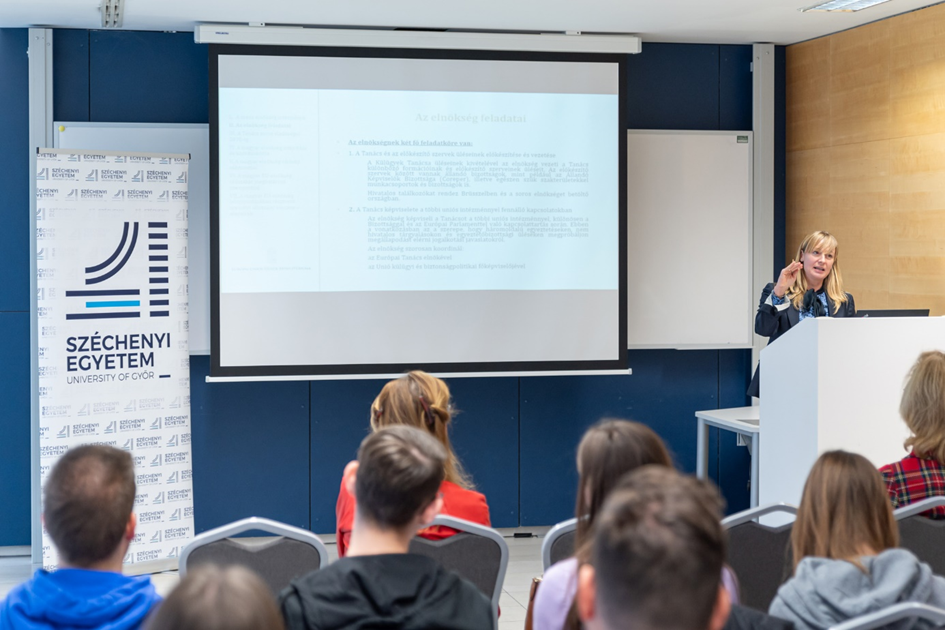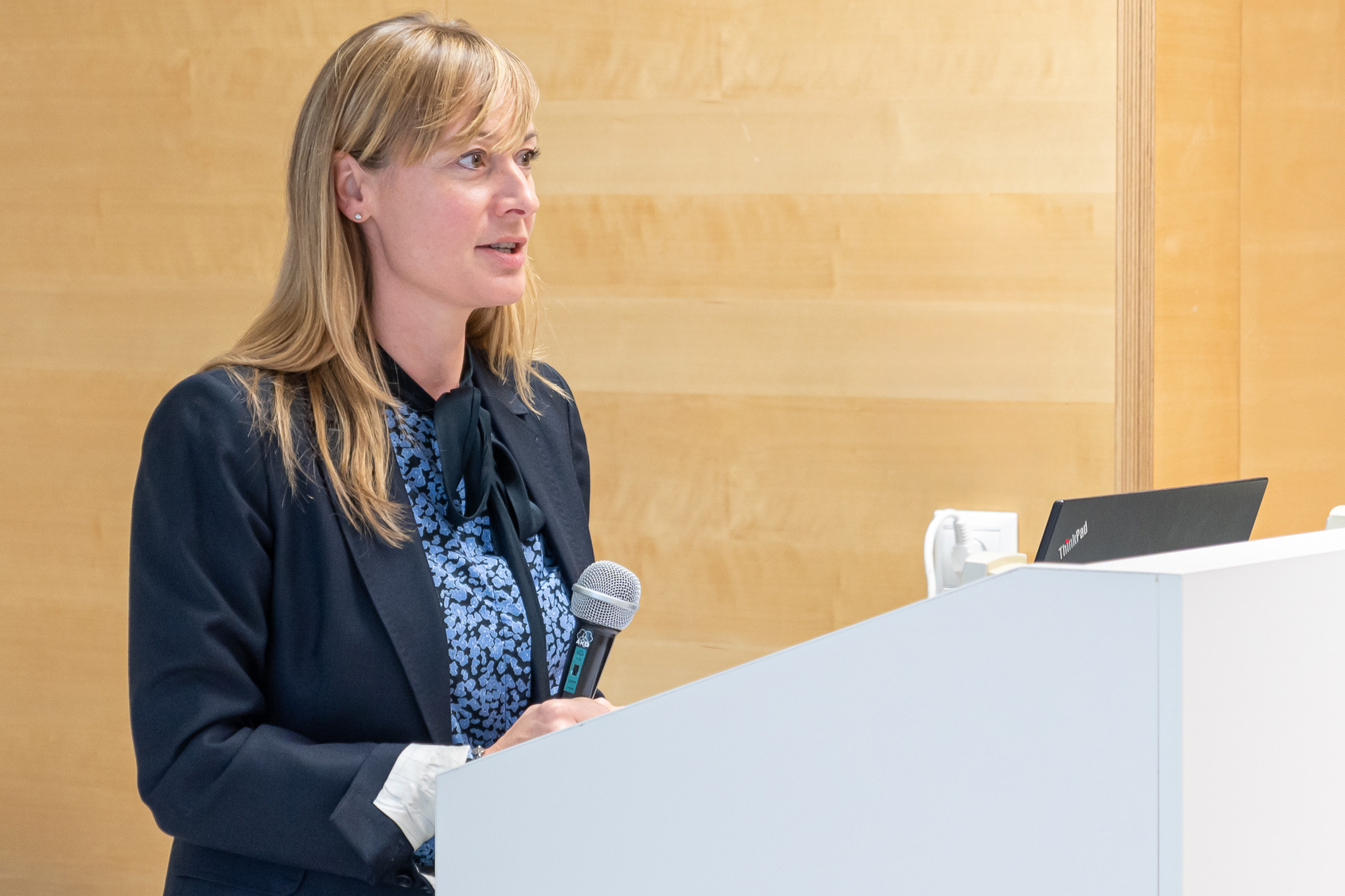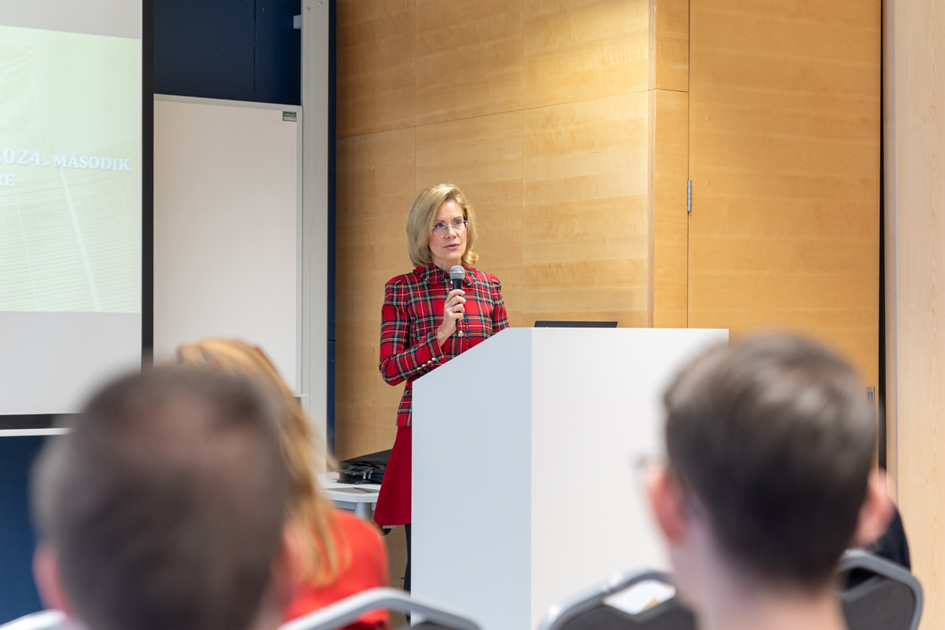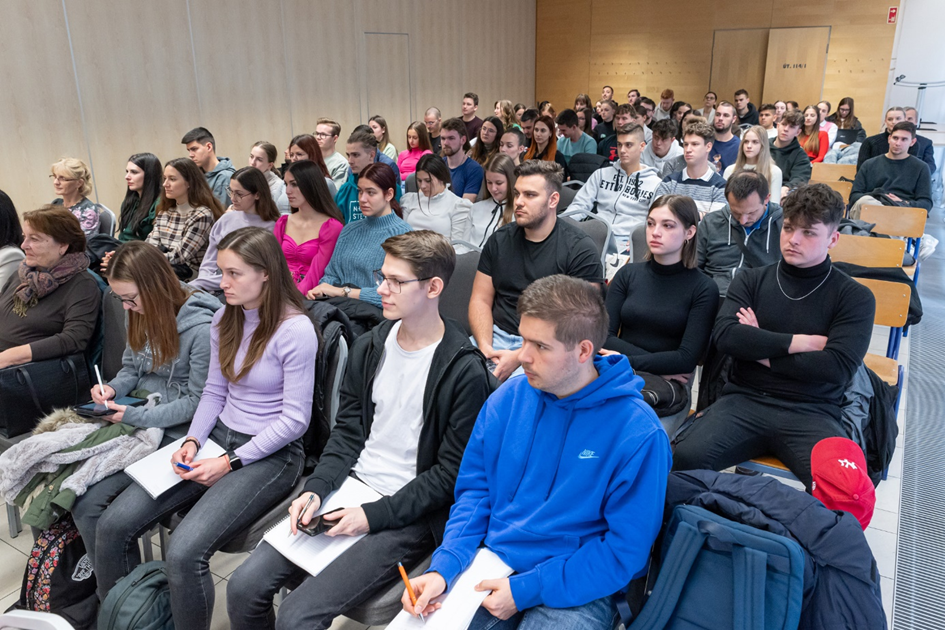Ministerial Commissioner’s Lecture at SZE on Hungary's Presidency of the Council of the EU
Dr Boglárka Ballester-Bólya, Commissioner at the Ministry of European Union Affairs responsible for EU presidency training, coordination of personnel policy tasks, and communication with non-governmental organizations, delivered a lecture at Széchenyi István University on the upcoming Hungarian EU Presidency in 2024 and the relevant preparations. The Hungarian presidency is unique in several aspects, coinciding with the twentieth anniversary of Hungary's accession in 2024 and occurring during a period of institutional change, including the European Parliament elections in June 2024.
Hungary will assume the presidency of the Council of the European Union in the second half of 2024. Students of Széchenyi István University had the opportunity to learn about the preparations, key priorities of the Hungarian presidency, and the training of those involved in the implementation from Dr Boglárka Ballester-Bólya, Ministerial Commissioner responsible for the Ministry of European Affairs' EU Presidency training, coordination of personnel policy tasks, and communication with non-governmental organizations.

 Dr Ballester-Bólya Boglárka emphasized the significance of holding the rotating presidency of the EU Council. (Photo: András Adorján)
Dr Ballester-Bólya Boglárka emphasized the significance of holding the rotating presidency of the EU Council. (Photo: András Adorján)
The lecturer was welcomed by Dr Eszter Lukács, Vice President for International Affairs and Strategic Relations at Széchenyi István University. She expressed the institution's commitment to not only supporting students in the acquisition of knowledge, but also aiding in the launch of their careers. "For young people envisioning a career within the European Union institutional system or on EU territory, the Hungarian presidency is a rare opportunity, as Hungary assumes this role only once every fourteen years." Dr Lukács said. The Vice-President expressed gratitude to the ministerial commissioner for accepting the invitation, as through her lecture, students can gather first-hand information about the details.
 Dr Eszter Lukács, Vice President for International Affairs and Strategic Relations at Széchenyi István University, welcomed the ministerial commissioner to the Győr campus. (Photo: András Adorján)
Dr Eszter Lukács, Vice President for International Affairs and Strategic Relations at Széchenyi István University, welcomed the ministerial commissioner to the Győr campus. (Photo: András Adorján)
"The rotating presidency of the EU Council is carried out by member states in a predetermined order, in six-month periods. The presidency's key tasks include organizing and leading Council and preparatory body meetings and representing the Council in relations with other EU institutions," explained the Commissioner on the importance of the role. She noted that Hungary, for the second time after 2011, is assuming this responsibility as a contractual obligation rather than a privilege. Dr Ballester-Bólya underlined the uniqueness of the year 2024, celebrating the twentieth anniversary of Hungary's and nine other countries' accession, coinciding with the European Parliament elections in the weeks preceding the Hungarian presidency. "This also means that the Hungarian presidency aligns with the institutional transition, making it a priority to ensure the stability of this transition," she added.
The Commissioner also outlined the focal points of the Hungarian presidency, including improving competitiveness, addressing demographic challenges, promoting the enlargement process, combating illegal migration, shaping defense policy, determining the future of cohesion policy, and approving the EU budget for 2025.
"The position is a tremendous responsibility and an equally significant opportunity. To ensure success, we are relying on the experiences gained during our 2011 presidency and conducting extensive training involving approximately 600 individuals in public administration," she enumerated. Finally, the Commissioner emphasized that this presents a significant opportunity for young people, and efforts are being made to involve students to a greater extent. They also engage in educational activities targeting youth to bring them closer to the European Union and its functioning.
 The relevance and importance of the topic were reflected in the full attendance of students during the lecture. (Photo: András Adorján)
The relevance and importance of the topic were reflected in the full attendance of students during the lecture. (Photo: András Adorján)











